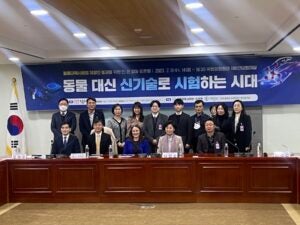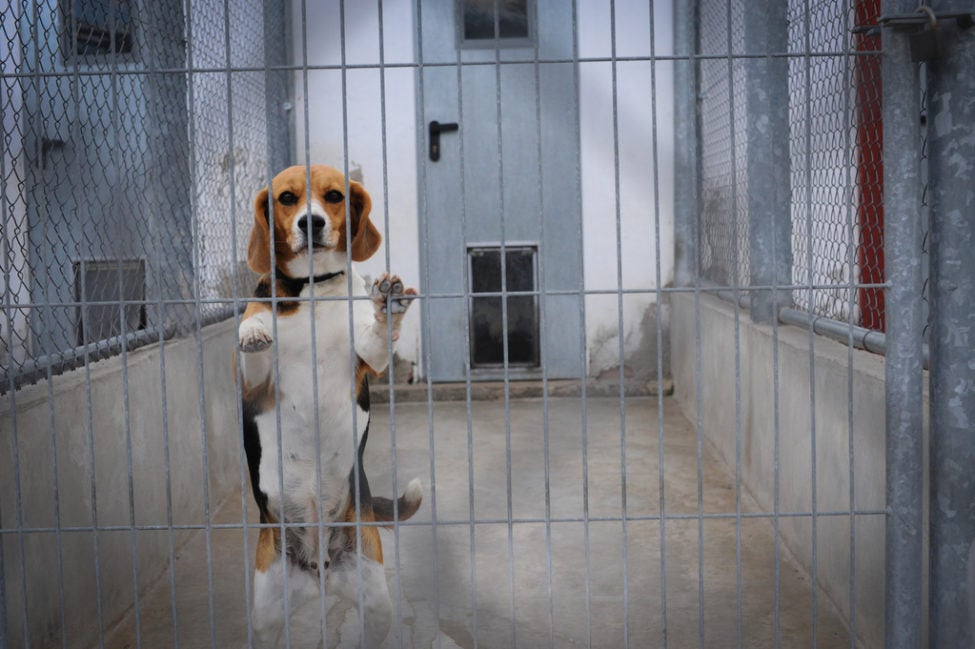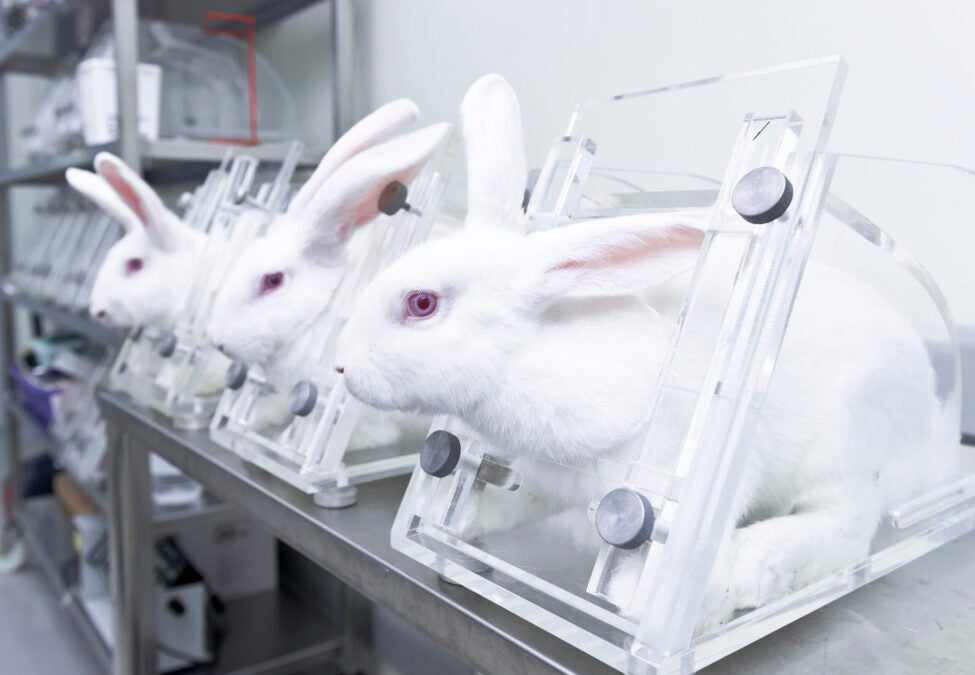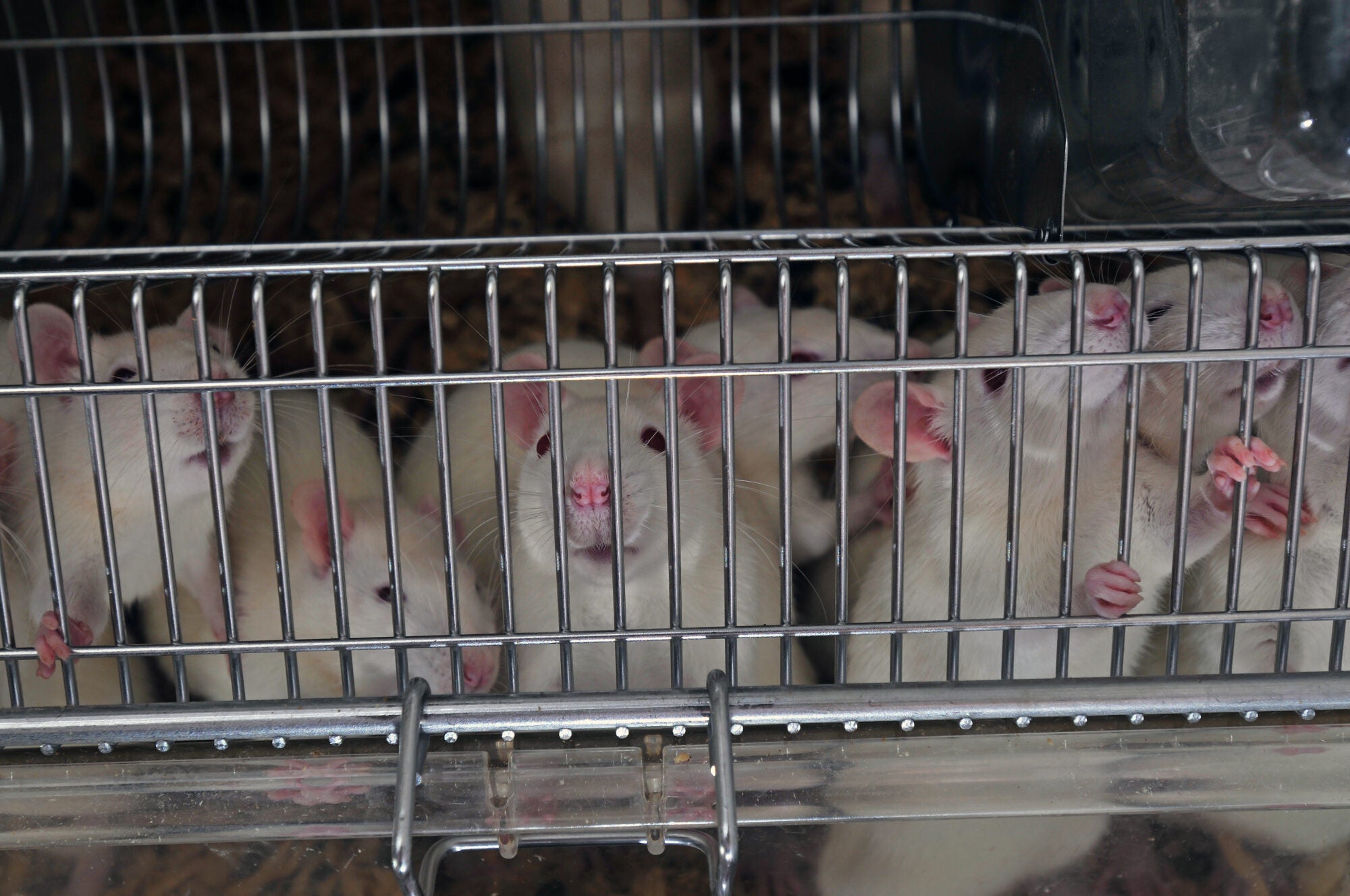
KOREA—A joint public-private discussion forum will take place on Feb. 8 at the National Assembly to request the swift enactment of a bill proposed to advance animal-free approaches in science.
The forum discussion entitled “An era that runs tests with novel technologies instead of animals” is hosted by the National Assembly Animal Welfare Forum and organized by Humane Society International/Korea, and Reps. Nam In-soon and Lee Joo-hwan. It takes place at the National Office Members’ Office Building from 2-4:30 p.m. on Feb. 8.
A number of domestic and overseas experts will be joining the discussion to share the past cases of public-private collaborative efforts in working to replace animal testing. The forum will start with HSI/Korea’s director of government affairs Borami Seo providing an introduction on the status on the PAAM Act—the Act on the Promotion of Development, Dissemination and Use of Alternatives to Animal Testing Methods. This will be followed by a session led by Dr. Lorna Ewart, chief scientific officer of Boston-based life science company Emulate, who will share examples of public-private cooperation in developing organ-on-a-chip technologies. Jae-ho Oh, director of the Korean Center for the Validation of Alternative Methods, will then provide a presentation of related activities.
In the closing discussion session led by Ewha Womans University Pharmaceutical Sciences Prof. Kyung Min-Lim, a range of experts will share their thoughts and ideas on non-animal test methods. The experts include:
- Nam-geun Song, head of the Animal Welfare and Environment Policy Bureau at the Ministry of Agriculture, Food and Rural Affairs.
- Jung-kwan Seo, a director with the Risk Assessment Division at the National Institute of Environmental Research. Young-ji Kim, a director at the Division of Regenerative Medicine Policy’s Regenerative Medicine Innovation Task Force at the Ministry of Health and Welfare.
- Young-jin Song, a director with the Bio-Convergence Industry Division at the Ministry of Trade, Industry and Energy.
- Tae-ho Lee, deputy director of the Bioscience Technology Division at the Ministry of Science and ICT.
- Young-jin Ahn, director of the Clinical Trials Division at the Ministry of Food and Drug Safety.
- Young-jae Cho, a professor at Seoul National University Bundang Hospital.
- Bae-hwan Kim, chairman of the Korea Society for Alternatives to Animal Experiments.
HSI/Korea’s Borami Seo said: “As cases of public-private cooperation have proven critical in the process of developing many innovative technologies in the past, technological development through such cooperation is crucial in the case of animal-free testing. Korea recognizes the importance of animal-free testing and has actively conducted technology research efforts in this area. However, the lack of cooperative working structures among ministries and the absence of a legal basis have prevented public-private cooperative efforts from taking place, which has caused difficulties in nurturing the industry. By co-organizing this event, HSI/Korea is excited to provide an opportunity for related ministries to share their ideas and emphasize the importance of public-private cooperation, by opening a channel for communication towards the enactment of the PAAM Act.”
Dr. Lorna Ewart said: “With the advancement of human relevant technologies that are more predictive than two dimensional cell culture or animal testing, companies must be willing to invest in research and development, as well as commercialization efforts, while working hand-in-hand with regulatory agencies. To bring efficient, accurate and safe preclinical testing models to the world market, Korea must initiate and integrate these actions.”
Research and development efforts for creating and commercializing human analog models, organ-on-a-chip, organoid, 3D-printing-used tissue reconstruction, computer modeling and big data analysis have gained speed worldwide. Both the public and private sectors are encouraged to make investments to make technological development more effective and efficient.
Korea has also been working to support infrastructural expansion of animal-free testing methods by joining forces with centers for the validation of alternative methods in the United States, Japan, Canada and Europe. Yet despite this effort, problems of duplicating R&D budgets, difficulties of commercializing new technologies and the absence of a validation system due to the lack of cooperative working structures persist in Korea. The situation has drawn the National Assembly Budget Office and many experts to request more efficient R&D cycle management and administrative innovation.
Since consensus was reached on the need to advance a bill on promoting the development, dissemination and use of animal-free testing methods, a cross-ministerial discussion forum was held on the topic at the National Assembly in 2019, followed by the Korea Legislative Research Institute’s research study on the need for the bill the same year.
After expert opinions were gathered for such a bill to be drafted in 2020, two bills on promoting animal-free testing methods were proposed and are awaiting review at the National Assembly. The first was proposed by Rep. In-soon Nam in December 2020, and the second was proposed by Rep. Jeoung-ae Han two years later in December 2022.
ENDS
Media contact: Borami Seo, bseo@hsi.org



